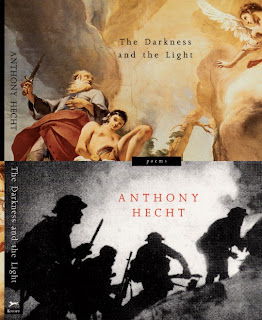
Much to chew on in Adam Kirsch’s essay collection, The Modern Element. Always a pleasure to see a critic going against the grain, or more particularly going against his own grain, or what we might assume on that score, as in the essay on Anthony Hecht. To me, Hecht is an over-upholsterer, forever asking you to get up so he can re-stuff his prize antique sofa with another handful of Augustanisms, to the point where I for one would rather go and swing on the hammock in the porch instead. The sofa may have a sign above it reading ‘Twentieth Century, Barbarism Thereof’, but an overstuffed prize antique sofa it remains, with the price tag still a little too ostentatiously attached. Here is Kirsch’s verdict:
Hecht’s strengths – seriousness, intelligence, formal discipline – are all rare in contemporary American poetry. He expressed, as well as any writer of the last fifty years, the resolve of the cultured mind faced with the enormous barbarism of the modern world. But that very stance is also what set the limit to his poetic achievement. It is not necessary for a modern poet to take chaos as theme; but if he does, it may be necessary for him to accede to that chaos, to allow it into his very speech, as Lowell and Berryman and Plath did in the various ways. It is to them, rather than to Hecht, that future readers will turn for a sense of what it was like to live, and suffer, in the late twentieth century.
1 comment:
Why does Kirsch think that he has the right to gainsay posterity? That last bit of the passage is just a way of saying 'I'm right because I'm right'. Which doesn't mean that I disagree with the point about Hecht, although I'd want to reject the either/or which he proposes. I can enjoy Hecht's achievement AND Plath's, Lowell's Berryman's. As you imply, the line of argument seems odd coming from Kirsch, whose inept review of The Triumph of Love failed to spot the brilliant accommodation of a barbarism exploited and condemned.
Post a Comment